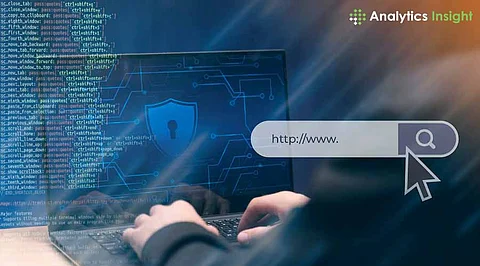

The dark web is a part of the internet that is only accessible with special software that we typically don't use. It is where illegal activity occurs, such as identity theft or data breach. Protecting our data from this dangerous space is vital. This article covers the measures to secure internet privacy and protect personal information in 2025 from dark web threats.
Let's discuss the dark web before discussing how to protect oneself from it.. This is a section of the internet that search engines do not index. Indeed, criminals use the dark web to purchase and sell stolen data. Hackers sometimes lift information from hacked sites and publish personal information on the dark web.
One of the most effective ways to secure personal information is to create strong and unique passwords for all accounts. Using the same password on different accounts increases the risk of exposure. A strong password is long and consists of uppercase and lowercase letters, numbers, and symbols.
Tip: To create and keep safe passwords, use a password manager.
How This Works: Each account should have a unique password. If a hacker accesses one of the passwords, other accounts won't be hacked.
One of the security features is 2FA, ensuring another layer of protection. When implemented, users must confirm their identity through a second means, such as a text message or an authentication app.
Tip: Email, banking, and social media should all have 2FA turned on
Why This Works: Even if a hacker has an individual's password. Hackers can't get into one's account without the second verification method.
Regularly reviewing accounts can reveal unauthorized activity. Tracking unusual activity on bank accounts, credit card transactions, and social media can protect internet privacy and secure personal information.
Tip: Setting transaction or security alerts on individual bank and credit card accounts is highly recommended.
Why This Works: Prompt action can prevent fraud from spreading.
A Virtual Private Network, or VPN, encrypts internet traffic so hackers cannot spy on users' online activity. This is critical in the world of public Wi-Fi, which is a target of cybercriminals.
Tip: Use a VPN when accessing any sensitive material across public networks.
Why This Works: A VPN hides one's IP address, making it more difficult to track one's online activity.
The dark web is filled with phishing attacks. Cybercriminals frequently send emails to steal personal information. One should always be careful about clicking links or downloading attachments, even if they seem legitimate.
Tip: Check out email senders and authentic communications that appear questionable.
Why This Works: It prevents people from accessing somebody's data through dangerous URLs and from falling prey to phishing scams.
The dark web seriously threatens personal security and online privacy. However, individuals can take steps to protect their personal information from being breached. Using secure passwords, enabling 2FA, and being alert for scammers can help reduce exposure. Keeping up with software updates, using VPNs, and regularly checking accounts are all important aspects of keeping data safe.
